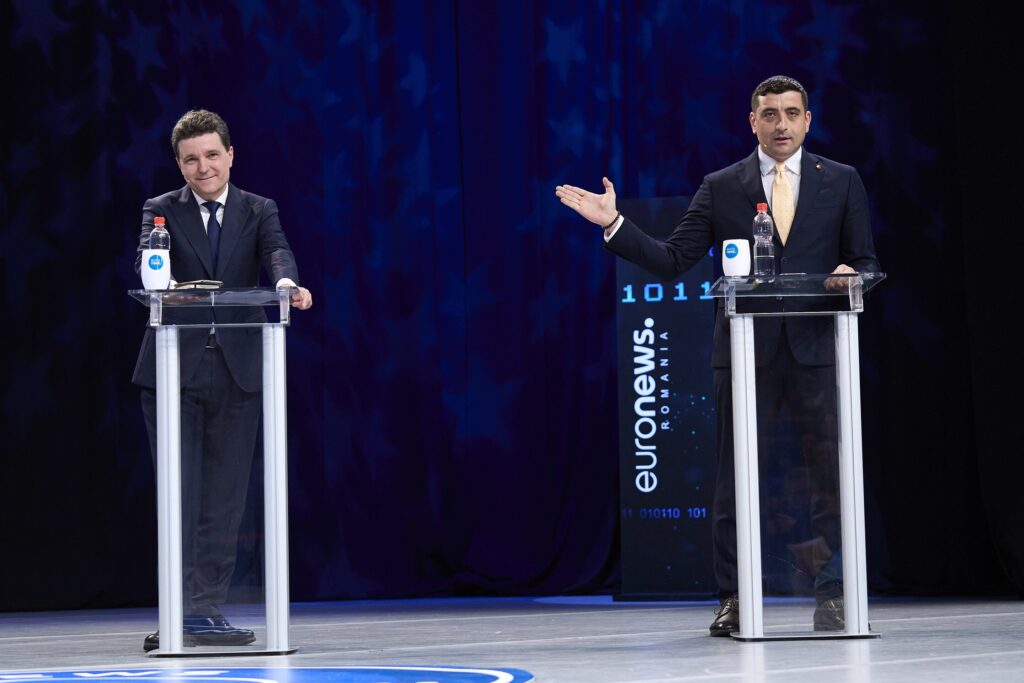
Roland Clark, University of Liverpool
This week, the far-right candidate George Simion has been trying to come to terms with his loss in the second round of the Romanian presidential elections that took place on the weekend. He has told the Constitutional Court that the election should be annulled because the government of Moldova had spent 100 million euros buying votes in support of his opponent, the Mayor of Bucharest, Nicușor Dan. A former mathematics prodigy and anti-corruption campaigner, Dan ran as an independent candidate on a pro-European platform. Both Dan and Simion received far more votes than either of the major parties – the National Liberal Party (PNL) and the Social Democratic Party (PSD) – who are seen as representing a status quo of systemic corruption, political in-fighting and nepotism. Unsurprisingly, the Constitutional Court rejected Simion’s appeal.
The Constitutional Court annulled the first presidential elections in December 2024 following clear evidence of Russian interference. Despite contesting the results, at the very least Simion has conceded victory this time. One of Simion’s most outspoken supporters on the far right, Gigi Becali, distanced himself from his former ally, saying that Simion has been ‘taking orders’ from a former army general and from an unnamed conspiratorial group in Vienna. With the far right in disarray once again, the rest of the country has breathed a sigh of relief to have avoided adding to the growing number of right-wing populist leaders on the world stage.
The spectacular success of the far-right candidate Călin Georgescu in the 2024 elections took most commentators by surprise. An almost unknown political figure, Georgescu had previously been a member of the Alliance for the Union of Romanians (AUR) but the party had expelled him because his extremist views were too distasteful even for them. He owed his celebrity almost entirely to a last-minute campaign on TikTok that left many people wondering whether he was a Russian puppet. The election was annulled when Russian interference was demonstrated, but evidence also emerged that his campaign had been funded by PNL, who had hoped to use him as a straw-man candidate they could defeat in the second round. It was not only clever publicity that attracted people to Georgescu though. His criticisms of the political establishment and his cavalier attitude to the truth convinced large numbers of voters that he was the best alternative to the status quo. Georgescu was banned from participating in the 2025 elections, as was another right-wing populist who had also split with AUR to form her own party, Diana Șoșoacă. With the two best-known right-wing figures prevented from participating, their supporters all rallied around the current leader of AUR, George Simion.
Nicușor Dan’s campaign received a substantial boost after Simion won 41 percent of the votes in the first round of the 2025 elections. Dan had only won 21 percent, but the rest of the political establishment rallied around him as the only non-populist candidate left. He benefited from the overwhelming support of almost all the mainstream media and from a surprisingly large turnout of voters who were terrified at the idea of a far-right president in power. The election resultsshow that Dan’s support came primarily from the large cities and wealthier counties, and from Romanians living abroad in countries that had previously been part of the Warsaw Pact, including Belarus, Moldova, Poland and Russia. Those who voted for Simion, on the other hand, lived primarily in small towns and villages, in counties from the so-called Old Kingdom, or among the Romanian diaspora in Western Europe.
The strength of the far-right constituencies should be a continuing cause for concern. Simion’s relative success demonstrates how disenfranchised rural Romanians feel, as well as how limited their media literacy is. The campaigns of Georgescu, Șoșoacă and Simion all relied on fearmongering and misinformation. Either their supporters do not realise that they are being lied to or, more likely, they dismiss it as irrelevant because ‘that is what all politicians and reporters do’. If truth is no longer seen to matter in politics, the mainstream parties are as much to blame as the far-right, and the use of easily manipulated social media campaigns to make or break candidates is likely to continue in the future. The real irony lies in the fact that so many Romanians living in the European Union have rallied around the anti-EU candidates. Despite needing freedom of movement to allow them to live in other EU countries, these people are deeply disillusioned with their experiences there. Often with low-paying jobs and treated like second-class citizens, they voted for people who promised to restore their national pride (even if Simion wasn’t clear how he intended to do that).
Although Dan won the day for liberal democracy in 2025, the disenchantment that Simion’s campaign revealed is not likely to go away any time soon. Unless Dan and others are able to give these disillusioned voters a new confidence that the liberal consensus has something to offer them, we are likely to see new and stronger far-right candidates appearing again the next time Romanians go to the polls.